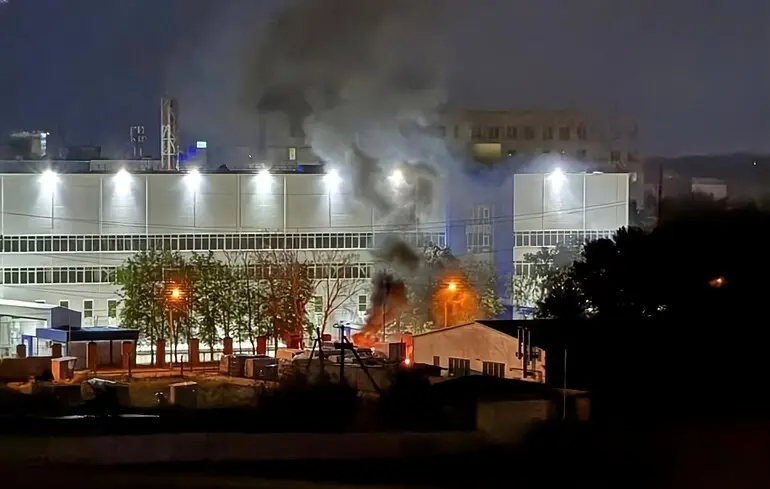Night Drone Attacks in Stavropol: Impact on Russia’s Defense Industry

On the night of August 11 to 12, the city of Stavropol became the epicenter of unexpected drone attacks, resulting in severe fires at several military-industrial facilities.
Local residents reported loud explosions and visible smoke in the sky, as fires broke out at the Monokristal and Neptun factories, which play a crucial role in Russia’s defense sector.
According to open-source data and OSINT analysts, the fire at Monokristal was officially confirmed.
This enterprise is one of the largest producers of synthetic sapphire in the world, holding strategic significance for the manufacturing of optoelectronics, displays, and laser systems.
Sapphire, a dual-use material, is utilized both in civil electronics and military equipment, including body armor glass and targeting systems.
What is particularly remarkable is that the plant is located approximately 520 kilometers from the Ukrainian front line and is part of the Energomera conglomerate, which dominates much of Russia’s sapphire production.
The sanctions imposed in 2023 led to a sharp decline in production capabilities: restrictions on importing materials from the US, Japan, and the EU forced the company to halt or reduce its manufacturing capacity, significantly impacting revenues.
As a result, Monokristal’s income dropped nearly by half—from over 4.2 billion rubles in 2021 to about 1.8 billion in 2024—and the company now operates at a loss, relying on federal subsidies.
Meanwhile, another strategic target, the Neptune plant, was also struck, raising concerns about the security of Russia’s naval and military infrastructure.
This plant manufactures control systems for naval vessels, including submarines, destroyers, tankers, and Arctic ships.
Its products are installed on more than 300 Russian ships, including nuclear-powered cruisers and Arctic vessels.
The authorities have yet to officially comment on the attack, but experts point to an increase in drone assaults targeting critical military facilities.
The rising number of such attacks heightens tensions in the global and regional defense sectors, illustrating how unmanned aerial vehicles are transforming modern warfare and security paradigms.
The disruption of key military factories by drone strikes underscores growing vulnerabilities in Russia’s military-industrial complex and highlights the escalating risks faced by critical infrastructure today.

